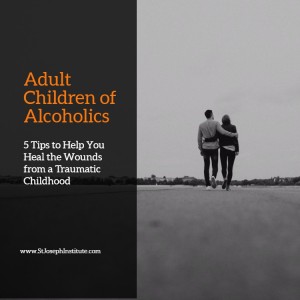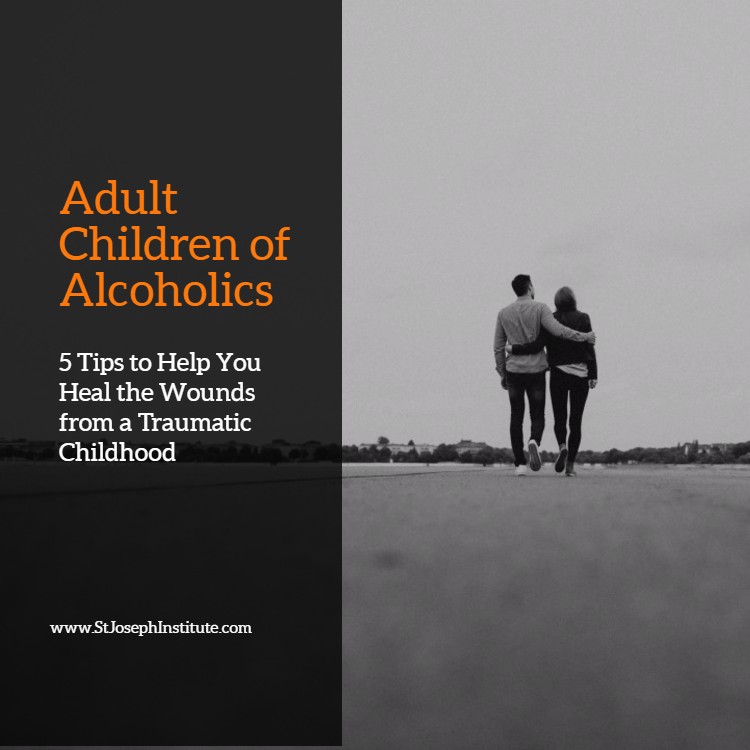 Adult children of alcoholics are often described as “co-victims” who develop many of the same characteristics associated with alcoholism, even if they’ve never taken a drink themselves. If you’re struggling to come to terms with the trauma you suffered due to a parent’s drinking, read on for tips about how to begin the healing process.
Adult children of alcoholics are often described as “co-victims” who develop many of the same characteristics associated with alcoholism, even if they’ve never taken a drink themselves. If you’re struggling to come to terms with the trauma you suffered due to a parent’s drinking, read on for tips about how to begin the healing process.
1.Realize That It’s Not Your Job to Save Anyone but Yourself
Many adult children of alcoholics feel an intense need to “save” others. Growing up, they may have been forced to comfort younger siblings, cook meals, and handle other adult responsibilities while a parent was struggling with addiction—leaving them to feel as though the weight of the world rests squarely on their shoulders. They also fear abandonment, which makes them stay in unhealthy relationships instead of moving on to find someone who treats them with the respect they deserve.
Change can be scary, but you are worthy of healthy relationships. It’s okay to cut ties with friends or family members who are using their toxic negativity to prevent you from taking the steps you need to be happy. These people don’t support your desire to change because they’re not emotionally ready to take a step forward in their own lives.
2. Accept Your Emotions
The majority of adult children of alcoholics struggle to express their emotions, especially the anger they feel surrounding their childhood trauma. One of the first steps in the healing process is giving yourself permission to express how you feel about your past as well as your current circumstances.
One way to become more emotionally honest is by writing down your thoughts in a journal. Then, gradually work on opening up with others in your day-to-day life. Instead of pushing down your irritation when a friend stands you up for your planned movie night, tell her it upsets you when you make plans and she abandons you at the last minute. If your spouse promises to help with the laundry and spends the night watching TV while you do all the chores, tell him you feel unappreciated when he ignores your request for assistance.
3. Use Affirmations to Stop Self-Criticism
Growing up in a home environment filled with dysfunction can lead you to believe that you’re somehow flawed. Young children often blame themselves for family troubles, creating patterns of self-criticism that last long into adulthood.
Affirmations are a form of self-suggestion. Choose a few positive statements that reflect your new outlook on life or specific goals you want to work on, then repeat them to yourself several times per day until they become your new truth. If desired, you could also write your affirmations down and place them in locations throughout your home where you’re sure to see them.
Some affirmations that may resonate with adult children of alcoholics include:
- I am choosing to be proud of myself and all that I’ve accomplished.
- I can find inner peace within myself as I am.
- I deserve wonderful things.
- I am in charge of my own life story.
- I am worthy of love and respect.
4. Give Yourself Permission to Have Fun
Adults who grew up with parents who struggled with addiction often complain that they find it hard to relax. Their brains are programed to expect stress and drama, leaving them constantly on edge.
Developing hobbies and special interests is an important part of being a well-rounded human being. Take the time to explore whatever personal passions you’ve always thought were too frivolous. Enroll in a dance class, learn a foreign language, take up oil painting, or plant a garden of fresh produce to add to your gourmet home-cooked meals. No matter what sparks your interest, strive to find at least a few hours each week to devote to the pursuit of fun.
5. Know You’re Not Alone
The stigma surrounding addiction may make you feel like your experience is unusual, but you’re not alone. The National Council on Alcoholism and Drug Dependency estimates that about one in eight people in the United States is an adult child of an alcoholic. Finding a network of support through Adult Children of Alcoholics (ACoA) can help you work on building a brighter future for yourself. ACoA’s support groups are based on a modified version of the 12 steps for addiction recovery used in Alcoholics Anonymous. Al-Anon Family Groups are another excellent option to consider, since they have groups for spouses or partners, teens, and adult children of alcoholics.
By Dana Hinders
To learn more about our programs or for a campus tour of St. Joseph Institute, please visit our website.


